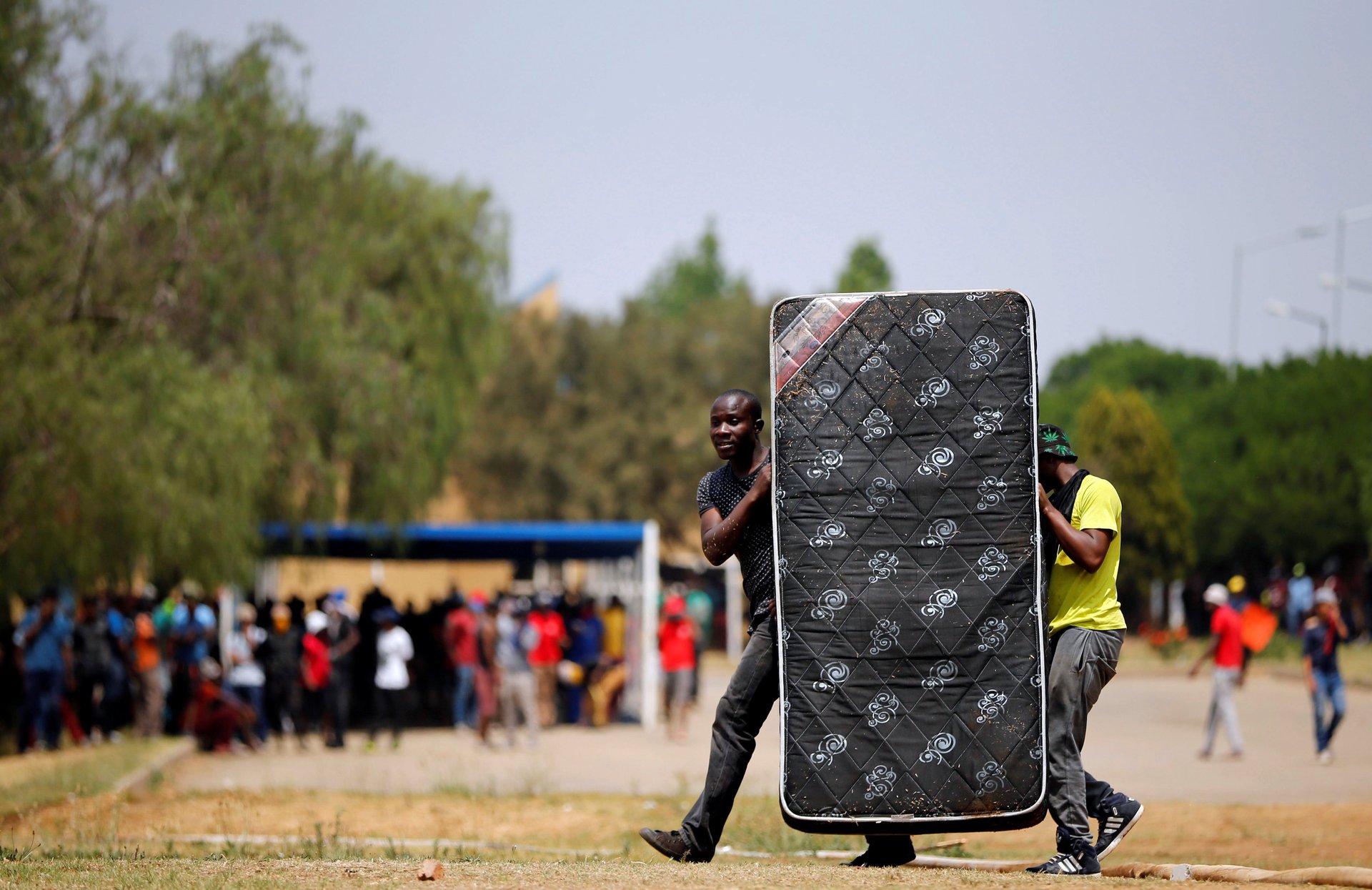More Africans believe their conditions have worsened, but are optimistic for the future
Despite facing economic headwinds, widespread political corruption, and shortages in food, energy, and clean water, citizens in three African countries with almost 300 million people are extremely hopeful about the future of their countries. The Pew Research Center survey from South Africa, Nigeria, and Kenya also showed that majority of the citizens favored young people to stay at home and to use the power of the ballot to affect change.


Despite facing economic headwinds, widespread political corruption, and shortages in food, energy, and clean water, citizens in three African countries with almost 300 million people are extremely hopeful about the future of their countries. The Pew Research Center survey from South Africa, Nigeria, and Kenya also showed that majority of the citizens favored young people to stay at home and to use the power of the ballot to affect change.
Most of the people in the three countries had a pessimistic outlook on the direction of their economies and were deeply concerned about unemployment opportunities. This was especially true for South Africa and Nigeria, the two largest economies in Sub-Saharan Africa.
In South Africa, for instance, even though the majority think that the economy will improve, more than half the people (54%) thought their personal finances were bad, a rise of 6% since the question was last asked in 2013. The majority of the 3,300 respondents in all countries also opined that the gap between the rich and the poor has increased and that many jobs only go to people with connections.
Rising crime levels and poor health systems were also of concern to South Africans. But in a year that has been defined by student protests against an increase in fees, many South Africans believed that education should be the country’s top priority for improvement—before healthcare, food and energy supply, and infrastructure development.
Poverty was the top concern amongst Nigerians, who also cited energy shortages, poor quality schools, and pollution as some of the problems bedeviling their country. For the first time in decades, Nigeria slipped into recession this year, which stemmed from a faltering currency and tumbling oil prices.
The displacement of subsistence farmers by Boko Haram has also created food shortages and famine, leaving millions subsisting on almost nothing. Yet a majority of Nigerians believe that the government is making progress against the terrorist group, and are optimistic that conditions—in health, education and gender equality—will improve for future generations.
The Pew survey in these three countries also brought to the fore longstanding racial (South Africa), tribal (Kenya) and religious (Nigeria) cleavages. Among these groups, there was division over how and whether governments benefitted specific ethnic groups or worked for the national interest. In Kenya, the Kikuyu and Kalenjin groups (who currently hold the president and deputy president positions) gave a much better outlook of the country than the Kamba, Luhya, and Luo communities.
But despite the apparent lack of faith in government, a majority of the people said they attended a political campaign event and had voted in the past year or in the more distant past.